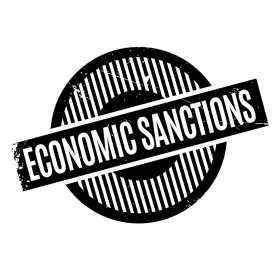The globalization of business means that many companies operate in more than one jurisdiction. This requires multinational companies to be aware of trade laws in several jurisdictions, e.g., regarding export control laws and economic sanctions regimes. When a jurisdiction’s laws apply extraterritorially or regimes conflict, companies are left wrestling with whether to proceed with certain transactions. This is particularly true in relation to the economic sanctions regimes in the European Union and the United States. For companies subject to U.S. economic sanctions regimes, compliance is complicated by Regulation (EC) No 2271/96 (EU Blocking Regulation), which was updated in 2018 in light of the U.S. position on Iran. An illustration of this can be found in the recent judgement by the Court of Justice of the EU (CJEU) (Grand Chamber) in Bank Melli Iran v Telekom Deutschland.1
The EU Blocking Regulation
The EU Blocking Regulation intends to “shelter” EU operators from certain U.S. sanctions that have extraterritorial effect.2 The EU Blocking Regulation nullifies the effect in the EU of any foreign court judgements based on such sanctions, allows companies to recover damages arising from these sanctions, and forbids EU operators from complying with such sanctions. Concerning this last aspect, compliance with U.S. economic sanctions is allowed only if authorized by the European Commission (Commission) and where non-compliance “would seriously damage” an EU operator’s interests or those of the EU.3 In practice, this threshold is difficult to overcome, and – importantly – companies do not want to endanger their dealings in the United States, face significant U.S. enforcement actions, or become the target of secondary U.S. sanctions by breaching any U.S. sanctions programs.
In response to the U.S. withdrawing from the Iranian nuclear deal and re-imposing economic sanctions on Iran, the EU expanded the EU Blocking Regulation to include prohibitions on complying with those sanctions in 2018. Additionally, the Commission adopted Implementing Regulation (EU) 2018/1101 – setting out how to apply for a derogation authorization – and a Guidance Note.
Pursuant to the EU Blocking Regulation, each EU Member State determines the sanctions in the event of breach of the EU Blocking Regulation. Local transposition of this requirement by EU Member States varies. Some have implemented criminal penalties, while others impose administrative fines (e.g., Germany).
The EU Blocking Regulation is currently undergoing a review which may lead to a revision in 2022. A Commission report summarizing the results of the public consultation notes (at p. 3) that the EU Blocking Regulation has been “unsuccessful in achieving its objective of protecting EU operators”, and highlights “the vagueness of the language used”.
Overview of Key U.S. Economic Sanctions
Current U.S. sanctions against Iran stem from a collection of statutes, Executive Orders and implementing regulations. At present, U.S. persons – entities incorporated in the U.S. and their foreign branches, and U.S. citizens or nationals wherever located around the world – are restricted from all direct or indirect dealings with Iran, unless the activities qualify for an exception or exemption or are otherwise authorized by the U.S. government. Complicating matters further, wholly foreign subsidiaries of U.S. persons are likewise prohibited from “knowingly engaging in any transaction, directly or indirectly, with the Government of Iran or any person subject to the jurisdiction of the Government of Iran that would be prohibited . . . if engaged in by a United States person or in the United States.” (31 C.F.R. 560.215)
It is this broad reach of U.S. extraterritorial jurisdiction that can create significant a legal and practical conundrum for European subsidiaries of U.S. companies in light of the EU Blocking Regulation.
Illustration: Bank Melli Iran v Telekom Deutschland
Bank Melli Iran (BMI) is a bank owned by the Iranian State, with offices in Germany. Telekom Deutschland GmbH (Telekom) is based in Germany and a subsidiary of Deutsche Telecom AG (DT). DT is a leading telecom company, with its headquarters in Germany. In 2018, DT generated net revenues of € 75.6 billion globally, of which approx. € 36.5 billion in the United States.
BMI and Telekom were contracting parties to an agreement pursuant to which Telekom provided telephone and internet services to BMI. With effect from Nov. 5, 2018, the U.S. re-imposed secondary sanctions against Iran. Those sanctions affected persons covered by the Specially Designated Nationals and Blocked Persons List (SDN List) maintained by the U.S. Office of Foreign Assets Control (OFAC), on which BMI was included. On Nov. 16, 2018, Telekom notified BMI of the termination of the agreement between them with immediate effect. Telekom apparently did not motivate the termination4 and did not have an authorization from the Commission. In turn, BMI initiated legal proceedings in Germany against Telekom seeking an order that the latter keeps all telephone and internet services active. BMI claimed that the termination breached the EU Blocking Regulation.
On appeal, the German court requested the CJEU issue a preliminary ruling concerning the interpretation of the EU Blocking Regulation. In its judgement – its first on the EU Blocking Regulation – the CJEU ruled that it is necessary to consider the principle of proportionality in assessing whether the termination of an agreement in compliance with U.S. economic sanctions must be allowed. In particular, regard should be had for whether forcing the continuation of the agreement could entail disproportionate economic consequences. The CJEU leaves it to the German referring court to assess how to apply proportionality in the case at hand. However, the CJEU noted that one factor that should be taken into consideration is that Telekom had not attempted to apply with the Commission for an exemption from the EU Blocking Regulation before terminating the agreement with BMI.
Contracting Considerations
From a (continental) European point of view, the effect of the EU Blocking Regulation on the contractual obligations as per the applicable substantive law varies with the options and remedies available under that law. Consequently, the contractual provisions should be tailored using the law chosen.
In its judgement in Bank Melli Iran v Telekom Deutschland, the CJEU introduces an extra-contractual balancing test that focuses on proportionality. To assess the proportionality of the effect of the EU Blocking Regulation, the CJEU finds it is necessary to weigh (i) the pursuit of those objectives served by the annulment of a termination in violation of the prohibition laid down in Article 5(1) of the EU Blocking Regulation, and (ii) the probability that the party concerned may be exposed to economic loss, as well as the extent of that loss, if it cannot terminate its commercial relationship with a U.S. sanctioned person.
This results in a double test to be conducted post factum which leaves the contracting parties with a large degree of uncertainty – also because the balancing test seems to exclude that nullity or annulment can be claimed of the obligations entered into because performance would result in a breach of law and regulations. Where the performance of an obligation breaches the law, that claim would typically not be available; however, an agreement breaching U.S. sanctions does not result in the performance being in breach of law or public order in Europe.
For agreements that existed prior to the U.S. extraterritorial effect of the sanctions, the appearance of such impediments may arguably be considered a force majeure event, which then by definition would be temporary. The effect of the EU Blocking Regulation – which is part of the public order of EU Member States – would then be to qualify the possibility to invoke the force majeure, allowing the contracting party impacted by the sanctions to claim either specific performance or damages. For obligations entered into subsequent to U.S. sanctions, the force majeure cannot exonerate the obliged party, and other contractual remedies are needed, assuming that the EU Blocking Regulation, as interpreted by the CJEU, does not override as public order law such contractual provisions.
Conclusion
The EU Blocking Regulation puts multinational companies in a difficult position, particularly given the permeation of the U.S.’s extended financial networks. Bank Melli Iran v Telekom Deutschland highlights the uncertainties and potential dilemmas faced by EU operators when dealing with persons designated under U.S. economic sanctions covered by the EU Blocking Regulation. Companies are de facto often forced to choose between doing business in the United States and doing business in Iran. And although the CJEU grants weight to the option to seek a waiver, the result of the balancing acts leaves European companies with substantial uncertainty.
As former UK Foreign Secretary Boris Johnson indicated in 2018, it would be very difficult to protect European operators “due to the extra-territorial effect of US sanctions and the difficulty companies have when they touch the live wire of the American financial network and they find themselves almost immediately sanctioned”. Indeed, the EU Blocking Regulation appears generally ineffective when it comes to counteracting the effects of U.S. economic sanctions, and EU operators fear the extraterritorial reach of such sanctions far more than any EU Member State enforcement action.
Nevertheless, the forthcoming revision of the EU Blocking Regulation could be accompanied by a more centralized sanctions and enforcement regime, which may potentially more effectively persuade EU operators to contract with Iranian parties. However, it is also possible that a revision will simply make the balancing and business determination that much more difficult for EU operators. The appetite, resources, and precedent of U.S. sanctions enforcement mechanism is unlikely to be significantly impacted, even by a revised strict EU Blocking Regulation.
On the other hand, given the fluid state of Iran nuclear negotiations, the complexities raised by the EU Blocking Regulation may be temporarily diffused if the United States offers to retract much of the extraterritorial reach of its sanctions regime and the risk of secondary sanctions as part of that negotiation process.
1 Case C-124/20, Bank Melli Iran v Telekom Deutschland GmbH, judgement, Dec. 21, 2021.
2 See Annex to the EU Blocking Regulation.
3 Article 5, para. 2 of the EU Blocking Regulation.
4 We do not know whether Telekom’s concern was prompted by U.S. enforcement action, or the risk of secondary sanctions – i.e., Telekom itself being listed for dealing with BMI. Based on publicly available information, our understanding is that Telekom was and is 100% owned by DT. If this understanding is accurate, there would not be direct liability under 31 C.F.R. 560.215, as Telekom is not owned or controlled by a U.S. person.
![]()





 />i
/>i

